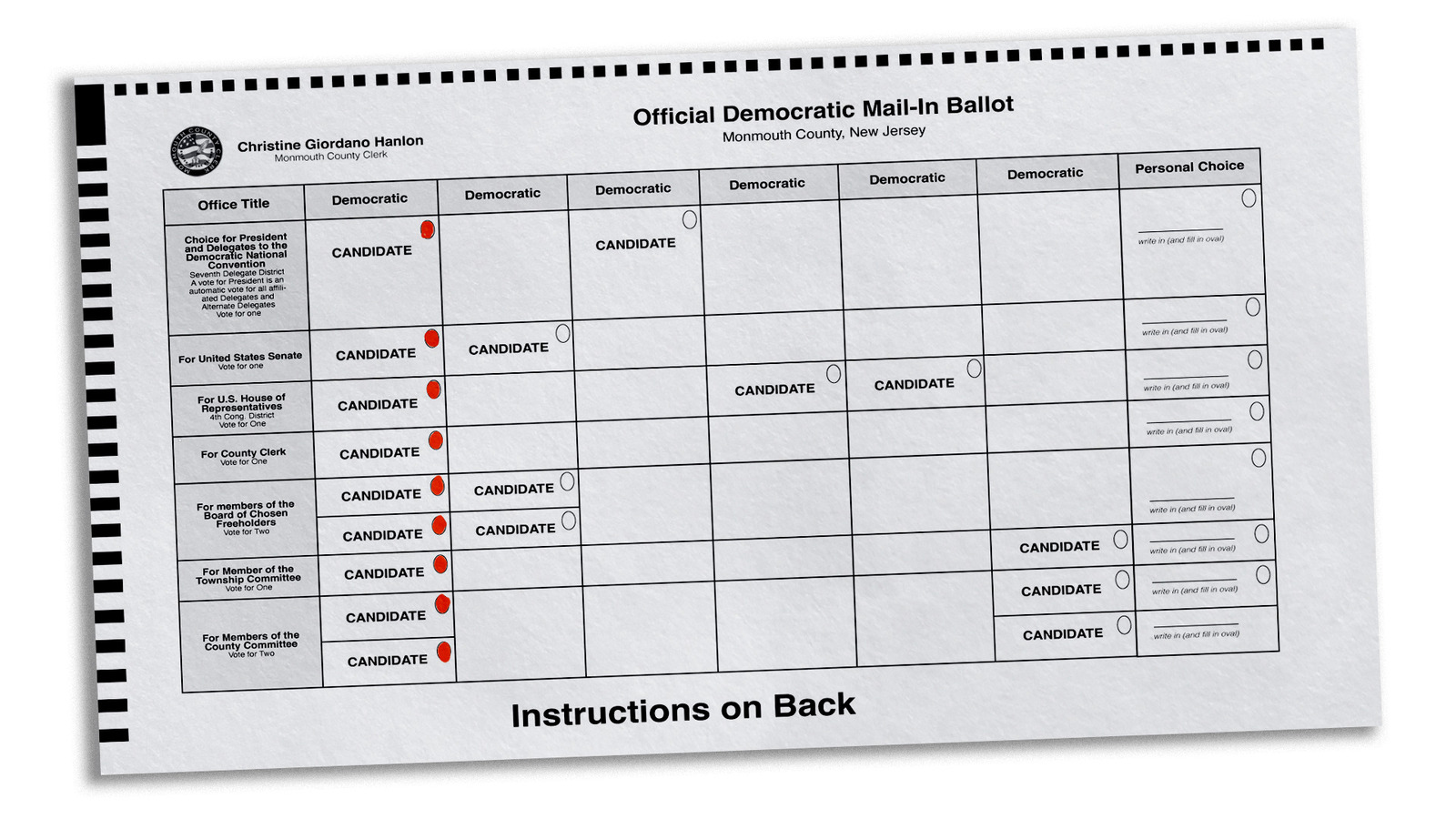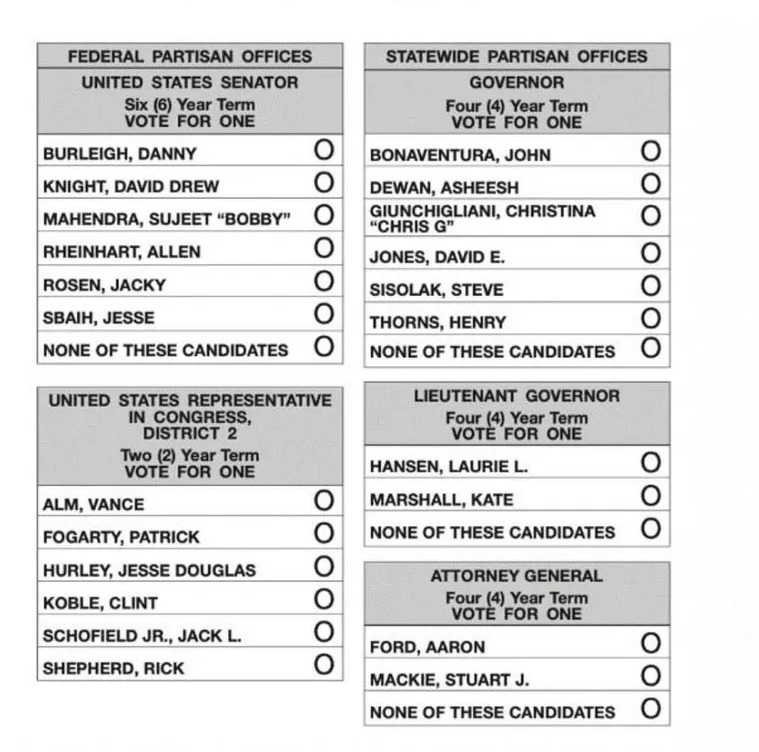Abolishing the “Ballot Line” Will Reshape Progressive Politics
With the eradication of the unconstitutional ballot design, New Jersey ushers in a new era of electoral politics.
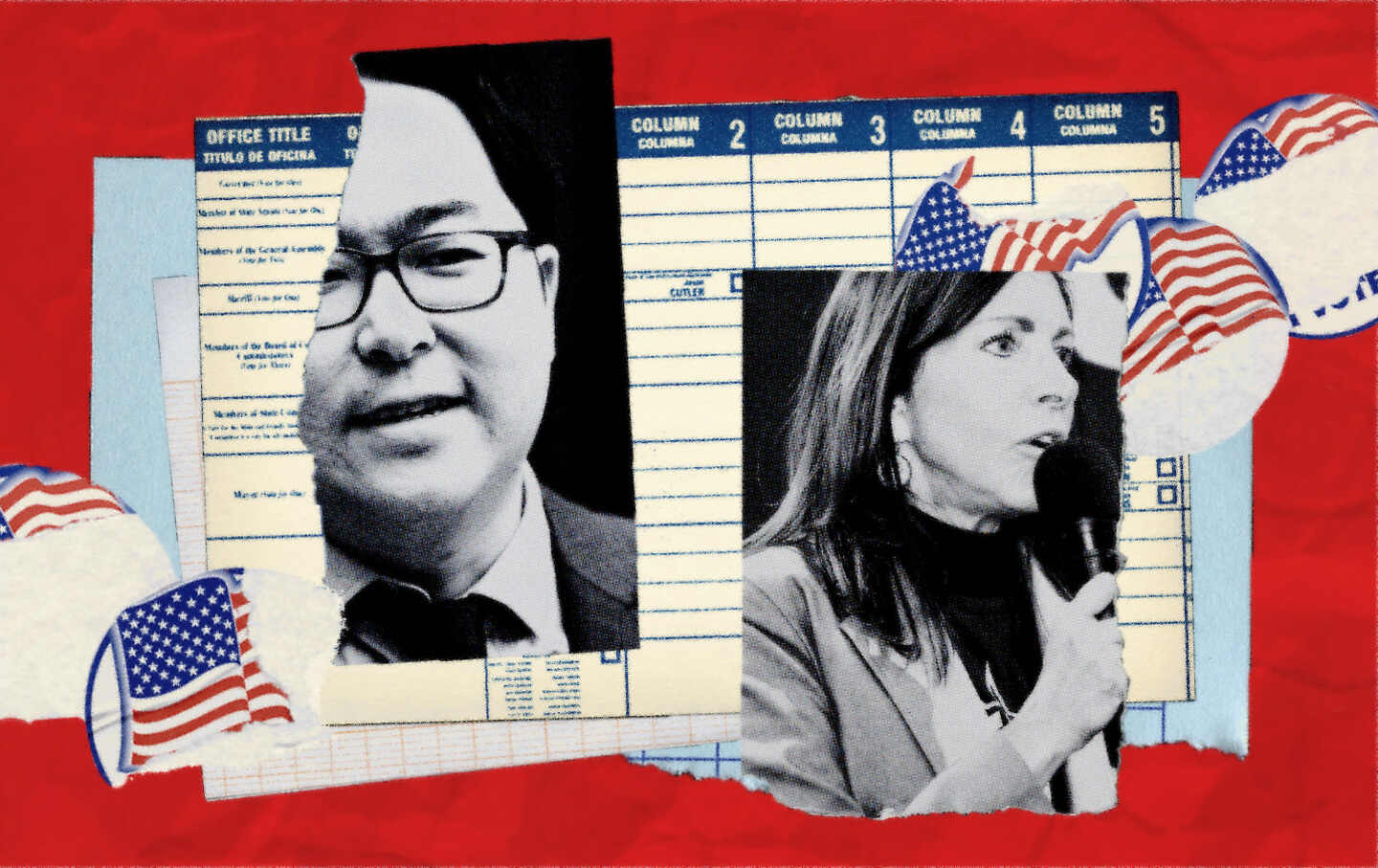
In late February, Andy Kim, a Democratic congressman representing a suburban New Jersey district, made national headlines when he sued 19 of New Jersey’s county clerks. Kim is currently running in the Democratic primary for the 2024 Senate election, and is alleging that the design of the state’s primary ballots (used by 19 of the state’s 21 counties) is unconstitutional.
Kim’s lawsuit has shaken the New Jersey political world, an unsavory terrain replete with party bosses, patronage networks, and all-powerful machines. Much of New Jersey politics runs through its 21 county parties, which wield incredible control over primary elections. They do this by designing the primary ballots themselves. The “line” format of New Jersey’s primary ballots is strange, often indecipherable, and used nowhere else in the nation. Though these ballots aren’t user-friendly, they serve their purpose well: They help ensure that the choice of the county party will always win a primary election.
What New Jersey ballots would look like with the traditional county line design.
The 2018 Democratic primary ballot from Elko County, Nevada, is an example of the “office block” design that Representative Kim and his advocates are pushing for.
In a safe blue state like New Jersey, the decisive power of the line-formatted primary ballots means that Democratic county parties wield great influence in gubernatorial and senatorial elections—and down-ballot, a Democratic or Republican county party’s endorsed candidate will virtually always win their respective primary elections, amounting to a startling subversion of democracy in safe blue or safe red state and local-level races.
Two months after Kim announced his bid for the Senate, another candidate, Tammy Murphy, jumped into the Democratic primary. Murphy has never held elected office, nor does she come from a background of public service—and yet, within days of her announcing, scores of elected officials and county party bosses flocked to endorse her campaign. Her chief qualification? She’s the first lady of New Jersey, the wife of Governor Phil Murphy, who presides over a massive patronage network funding many county Democratic parties.
Despite leading in polling, small-dollar fundraising, and grassroots support, Kim was losing out on some of the most coveted county party endorsements, as the governor whipped support for the first lady. Anticipating that he’d receive poor ballot placements in the June primary election, Kim, joined by two other congressional candidates running in this cycle (Sarah Schoengood and Carolyn Rush), filed this lawsuit, in what was initially regarded as a Hail Mary attempt to stave off surefire defeat in the primary.
Just over one month later, Kim’s lawsuit has upended New Jersey politics in a way that no one could have foreseen. After facing relentless criticism from grassroots Democratic activists, Tammy Murphy dropped out of the primary on March 24, citing her unwillingness to wage a “very divisive and negative campaign.” Five days later, a federal judge officially granted Kim’s request for a preliminary injunction, which essentially declared the ballot line to be unconstitutional for the upcoming primary, and required that June’s ballots be designed in a more neutral fashion. Democracy activists in the state have heralded this as the end of ballot lines in New Jersey—and if this monumental decision holds, it will mark a seismic development in the state’s political history.
Not only will it finally allow the electoral left to build power and flex their muscle throughout the state, it may be a boon to the progressive movement nationwide.
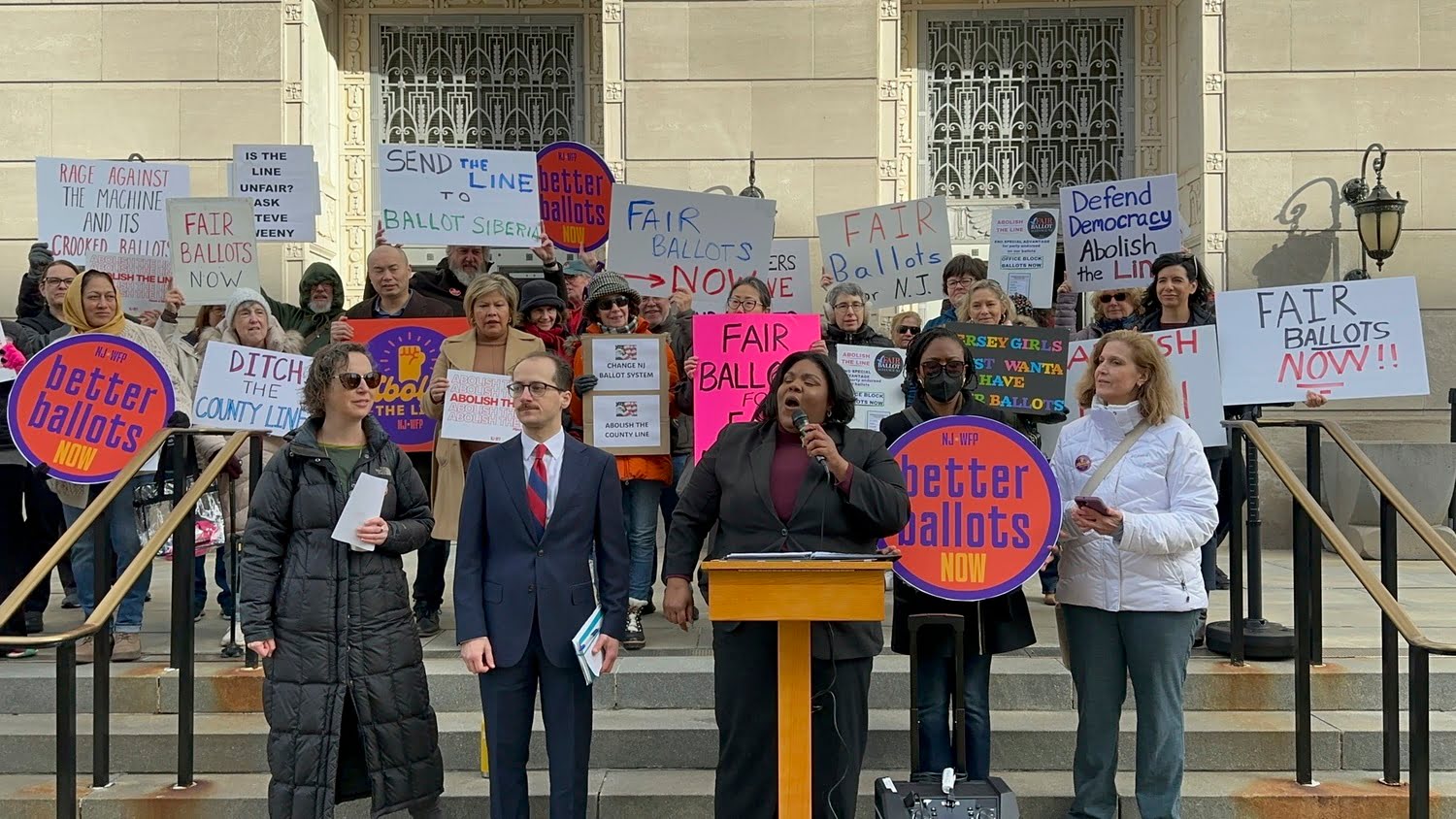
For decades, the ballot-line format has been a fundamental element of New Jersey’s primary elections across both parties. All of New Jersey, except for Sussex and Salem counties, currently use this format. Though there are slight variations by county, they’re best understood as grids: The highest-level races—usually a presidential, senatorial, or gubernatorial contest—will occupy the top rows, and each subsequent race will occupy the rows below in descending order (from federal, to state, to local, to party races). Each candidate for office is placed in a particular column so that candidates competing in the same race are aligned horizontally.
The incumbent at the top of the ticket—who will almost always be the best-known candidate on the ballot—will usually receive the endorsement of the county party. The county party’s other endorsements will follow in that same column, which provides an enormous advantage to all those down-ballot sharing a column.
This dynamic becomes clear when considering this coming election’s primary ballot: One column will list President Joe Biden—and a given county party’s endorsed candidates for Senate, House, and lower offices will appear in the same column, underneath Biden’s name. The ballot format may suggest that Biden himself has formally endorsed the entire county party’s slate. And whether it’s out of loyalty to the politicians they recognize, or pure habit, voters will usually just tick their selections down the same column, even if they’re less familiar with the down-ballot races being contested.
Even if there’s not an incumbent on the top of the ticket (that is, if there is a contested presidential, senatorial, or gubernatorial primary), county parties have other ways to influence voters. For example, they’ll ensure that their endorsed slate is given a favorable place on the ballot itself. Candidates that remain unendorsed by the county party may find themselves in different parts of the ballot, perhaps awkwardly floating on an easy-to-miss section, or maybe alone in a separate column altogether. To stand outside of an official, party-endorsed slate also delegitimizes candidates, making them unappealing for the average low-information primary voter. “Ballot Siberia” is the term used by New Jersey politicos to describe this sort of treatment—and it’s often used by county parties to punish candidates as they see fit.
To be listed off of the county party line is a death knell to any campaign. Peter Jacob, a two-time Democratic candidate in New Jersey’s Seventh Congressional District, describes the county party line as having “the equivalent of having $2 million in a campaign to run.… Instead of spending money on organizers and advertising for name recognition, that candidate is just riding the coattails of whoever’s on the top of the ticket.”
Julia Sass Rubin, a Rutgers University professor and scholar of the ballot line, backs this up empirically. She has determined that ballot line placement has provided an average advantage of 38 percentage points, which all but guarantees victory for candidates who receive the county party line. According to Rubin, “New Jersey primary voters are encouraged by the county parties, and conditioned by years of practice to vote for all the candidates on the county line.”

The likelihood of a county party’s endorsement is almost always a direct reflection of how much money a given candidate possesses, or how much they can fundraise on behalf of the party. In the lead-up to his 2017 gubernatorial campaign, Governor Murphy, who spent over 20 years working for Goldman Sachs, loaned himself $10 million to run his campaign, and showered every county chair with tens of thousands of dollars in donations. Unsurprisingly, he won nearly every county line, and cruised to victory in the primary and general elections.
Two decades prior, it was another Goldman Sachs man, Jon Corzine, who used his vast fortune to parachute into public office by buying county party lines during his first senatorial primary in 2000—Corzine would eventually win the Democratic nomination that year, and went on to serve a term as senator and another as governor of New Jersey. This isn’t a phenomenon just limited to Democrats, either—ahead of the 2018 Republican senate primary, a wealthy pharma CEO named Bob Hugin cut $37,000 checks to each Republican county party, won the county lines, and easily grabbed his party’s nomination.
While there are an array of ways county parties can influence the political process, the ballot line has remained the most important tool in their arsenal. It’s an enforcement mechanism that guarantees compliance among elected officials—even incumbents know that they can easily lose a primary election without the ballot line.
In a recent interview, Democratic Representative Bill Pascarell was asked about his quick endorsement of Tammy Murphy upon her entry to the race. Pascarell, an 87-year-old who’s held elected office in New Jersey for nearly four decades, didn’t heap praise on the first lady’s credentials nor did he voice any excitement for her candidacy. Rather, he rhetorically asked, “Do I fight my county chairman?” The risk of endorsing Kim, whom Pascarell considers a friend and mentee, would be severe: It could mean that the counties in his congressional district would have the leverage to withhold endorsement during the next primary, especially if they receive pressure from the governor to do so. Without county support on the ballot, even a 14-term incumbent like Pascarell isn’t safe from a primary defeat.
There was not much that could be done legislatively—both Democrats and Republicans in the state legislature have been too scared to touch ballot lines, fearing reprisal from county parties. But for years, grassroots groups have rallied against them. Since 2021, the New Jersey affiliate of the Working Families Party has run the Abolish the Line campaign, which has been mobilizing voters on the issue. Candidates and organizers associated with Abolish the Line previously filed a similar lawsuit in 2020 challenging the constitutionality of the state’s primary ballot design. Since then, the suit has dragged on through the legal process; it’s currently in the discovery phase.
Kim’s lawsuit, however, broke through in a way that no one could have foreseen. It has benefited from a “perfect storm to galvanize public opinion,” in the words of Arati Kreibich, a democracy activist and former Democratic congressional candidate. Kim’s situation has cast a light on the amoral, power-hungry machines dominating the state’s politics, a revelation that is especially resonant following the eyebrow-raising corruption scandals of the incumbent Bob Menendez. Kim himself is the perfect protagonist for this sort of story. While he isn’t particularly progressive and, like every partisan elected official in New Jersey, has ridden the line to victory throughout his political career, he strikes voters as a genial, virtuous public servant (he gained national prominence in the hours after the 2021 Capitol insurrection, when he was photographed sweeping up debris left by rioters).
Popular
“swipe left below to view more authors”Swipe →Within weeks of the lawsuit, the tide completely turned against the ballot line. For the first time, machine-friendly politicians began openly opposing the practice. Steve Fulop, the mayor of Jersey City (the second-largest city in the state), even rescinded his initial endorsement of Murphy, and switched his endorsement to Kim. But perhaps the most shocking moment came when New Jersey’s attorney general, a direct appointee of the governor, released a statement affirming that his office “has concluded the challenged [ballot-line] statutes are unconstitutional and therefore will not be defending them,” a move that allegedly infuriated Governor Murphy.
While many are shocked at the speed with which support for the ballot line has collapsed, advocates for abolishing the line say it’s the culmination of years of effort. For Kreibich, “activists built the momentum for change” over years, as they as they “spotlighted the disproportionate influence of political machines,” as well as “the lack of real choices in New Jersey elections.”
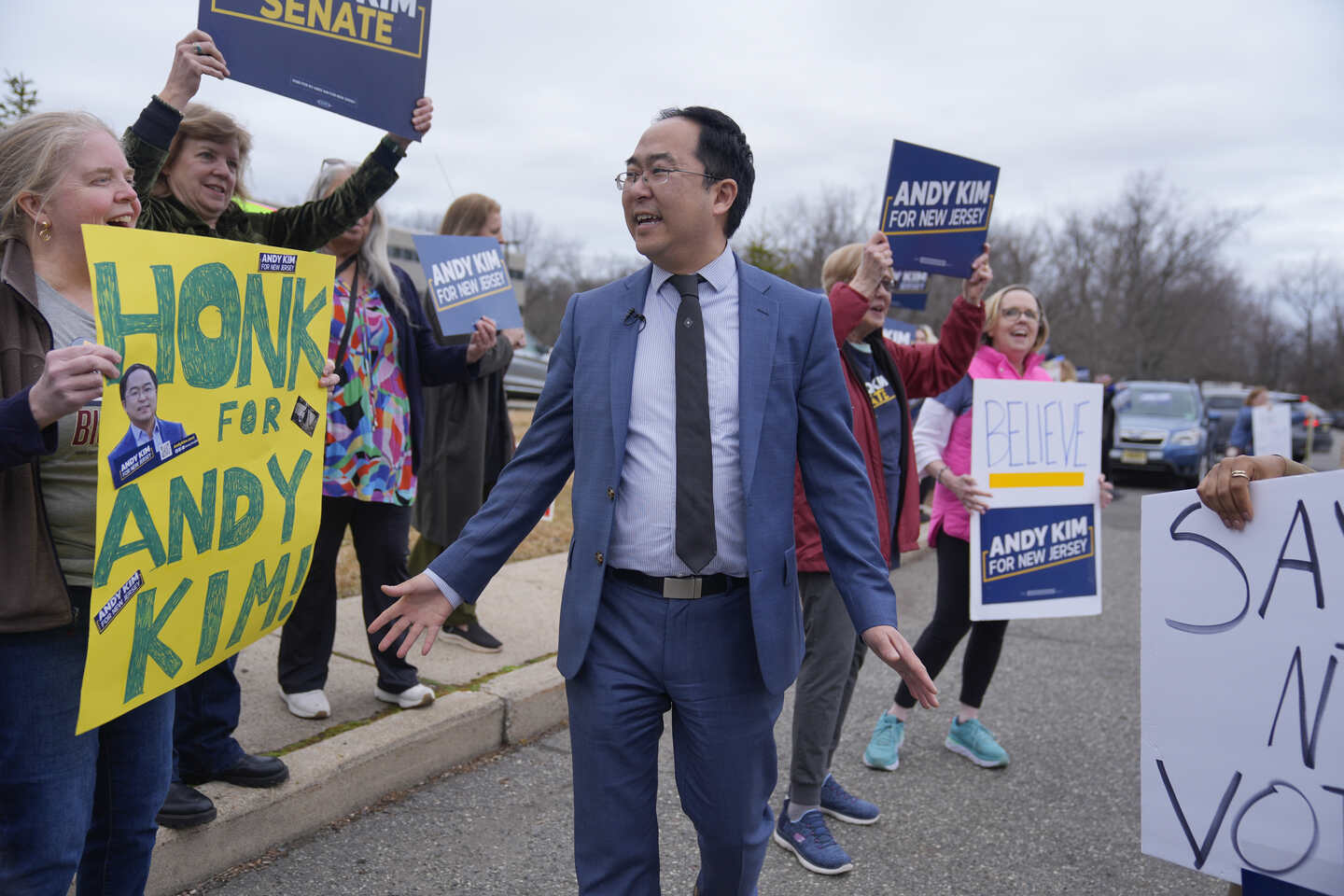
By trying to strong-arm New Jersey Democrats to support his wife, Governor Murphy may have gifted New Jersey progressives with their most major victory yet. His nepotistic power grab ironically did what activists have tried to do for years: It has nationalized the issue of the ballot line, and illuminated the brazenly corrupt practices structuring state politics.
Within a day of last week’s ruling, party leaders had already begun dragging their feet on ballot redesigns. Regardless of whether this lawsuit permanently kills the ballot line, progressive activists remain confident. “The political winds are behind us to keep propelling this movement forward,” says Antoinette Miles, state director of the New Jersey Working Families Party. “The movement to abolish the line has already won in so many senses.” The collapse of the ballot line will be welcome news to all New Jersey primary voters, an electorate whose representatives have, for decades, only remained accountable to county party leaders.
The end of New Jersey’s ballot line may also bring about a new horizon for the electoral left nationwide. Through such a controlled primary process, progressives have not been able to exercise any meaningful leverage over the state’s Democratic Party, despite the fact that New Jersey holds a large liberal grassroots base. As successful primary challengers have swept Democratic Party primaries across the country in recent years, New Jersey progressives haven’t ever come close to ousting an incumbent in a primary, with dozens of attempts being staved off by county Democratic parties. Progressive activists know that the ballot line is the most important impediment blocking their path to real political power in the state.
With the abolition of the line, a number of milquetoast, corporate, machine-friendly Democratic representatives in safe blue districts may finally face credible challenges. National organizations such as Justice Democrats, the Sunrise Movement, and the Democratic Socialists of America, which haven’t ever seriously engaged in New Jersey races because of the ballot line, would finally be incentivized to invest meaningful resources into exciting, bold candidates in New Jersey. A genuine primary process will also help cultivate a progressive-left bench down-ballot throughout the state as well, building up a new generation of ideologically committed candidates not beholden to machine bosses—and, in due time, may rise to become national leaders within the Democratic Party.
There are still many institutional factors obstructing the democratic process in the Garden State, but the abolition of the ballot line will be a critical first step in empowering the state’s voters. For progressives in New Jersey, the future looks brighter than ever.
More from The Nation

Donald Trump Is the Authentic American Berserk Donald Trump Is the Authentic American Berserk
Far from being an alien interloper, the incoming president draws from homegrown authoritarianism.

If Democrats Want to Reconnect With the Working Class, They Need to Start Listening to Unions If Democrats Want to Reconnect With the Working Class, They Need to Start Listening to Unions
The Democrats blew it with non-union workers in the 2024 election. Unions have a plan to get the party on message.

What Was the Biggest Factor in Kamala Harris’s Defeat? What Was the Biggest Factor in Kamala Harris’s Defeat?
As progressives continue to debate the reasons for Harris's loss—it was the economy! it was the bigotry!—Isabella Weber and Elie Mystal duke out their opposing positions.

